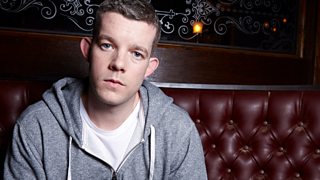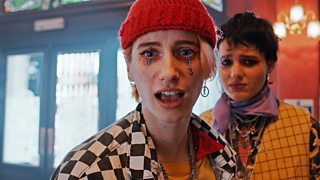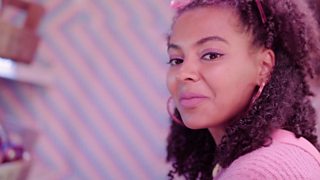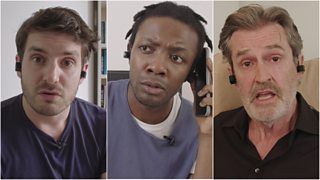Pride: Eight eloquent LGBTQ+ stories available on BBC Sounds
3 June 2021
While Covid-19 restrictions have caused the cancellation or rescheduling of some Pride 2021 events, there's still lots of celebrate - including these powerful works from New Creatives artists available now on BBC Sounds. Let these amazingly talented emerging audio makers guide you through a range of reflections on the LGBTQ+ experience.
Reflecting on love, loss and international travel during the 80s and 90s

Touchdown features the voice of an anonymous former flight attendant looking back on his career in the 1980s and 90s, a time of boom in the airline industry.
I assume you saw the picture of Diana holding that man’s hand. I just keep thinking about him sitting there sick as a dog, immortalised as the person with AIDS.
This was a profession that attracted many gay men, the airlines offering a workplace relatively free of discrimination.
But this freedom was soon disrupted by the emergence of the HIV virus and its spread.
As a gay man living and working in constant transit, he fought to maintain relationships in the face of overwhelming loss and societal injustice.
Bisexual and pansexual erasure in modern working class life
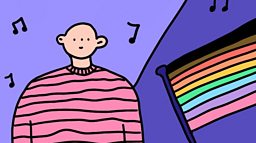
Inspired by real life conversations between 1990s Chris and four other queer people about their experiences, Erasure Island tells the story of bisexual, pansexual and queer erasure over a minimal abstract soundscape.
When I left my flat the harness, the fur coat and my mate's matte lipstick seemed like the perfect idea.
His poetry focuses on themes brought up in the interviews, exploring the queer experience of having your identity erased by those around you, your relationship, and yourself, as well as how they manifest in real life scenarios: work, the pub, the club, at the kebab shop, and your mum and dad’s front room.
Becoming your true self
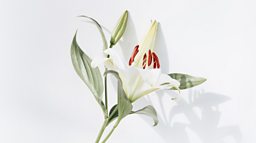
With the help of four members of Birmingham’s LGBTQ+ community, Lost Time explores the impact of self-acceptance and stigmatisation.
I’ve been a victim of homophobic attacks… they pushed me to the floor and started to kick me.
Creator Hugh Sheehan said: "Many LGBTQ+ people’s view around the progress we’ve made as a society towards queer acceptance has a bittersweet tinge.
"Whilst of course being very happy about this progress, many wish that they’d grown up in a time when they could’ve been themselves sooner.
"There is an optimism about the future, but also a sense of sadness and loss. Usually, LGBTQ+ people don’t begin their lives living as the person they truly are; instead trying to blend in, for fear of reprisal or admonishment."
"Families were never depicted or described as ours was"
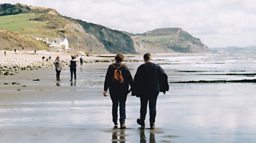
Ruari Paterson-Achenbach's Lesbian Families Sound Archive draws on their personal experience of being raised by lesbian parents, before same-sex adoption even became legal in this country.
The challenging thing was the fact that as lesbian parents, I, with the children, had to come out pretty much every single day to people who would ask me a question.
Ruari said: "We grew up in a world which was not created for us, where families were never depicted or described as ours was, where every form and certificate filled-in had to be changed to acknowledge the very existence of my parents."
Being trans masculine and black
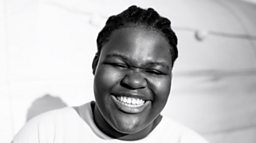
In these two pieces of poetry - Decolonisation of a queer carcass & Stew - Tanaka Fuego unfleshes the body of a trans masculine individual.
The truth is, in this life, identity and culture like any stew can reach a boiling point.
In the first poem he is demanding and celebrating liberation from all that’s around him, from society, from past lovers, from family relations, explicitly with mother and father, exploring the hope he has for a healthy and mended relationship. Part two goes into the harsh reality of what being trans masculine can also look like on the other extreme side of the spectrum.
The revolutionary helpline
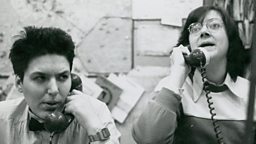
Living With the Light On: Switchboard in the 70s tells the story of Switchboard, the UK’s leading LGBT+ helpline, providing information and lending a reassuring ear to anyone who calls.
The calls that we lived for were the ones where we could make a serious impact, if we got it right.
Combining interviews with original music and archive material, the piece attempts to challenge the linear perception of LGBT+ history by exploring the revolutionary mood of the period before the HIV/AIDS epidemic came to dominate Switchboard’s work.
Celebrating the women we love
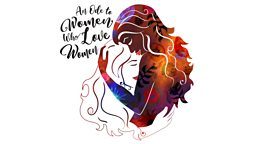
An Ode to Women Who Love Women is Jane Hearst's sound explosion celebrating the women we love and the strong female leaders we love to admire.
Look at her, dreamy eyes, sleeping in the muted light of the sun. Every breath she takes feels like life, all-encompassing.
She was inspired to create this audio piece after reflecting on a memory from her youth: "I remember talking to my best friend about women and self-confidence. When I told her that I had never struggled with how I looked or how I led people, she was visibly angry. This really stuck with me.”
“I began to wonder whether my sexuality had something to do with it. Whilst my friends measured themselves against a perceived standard of femininity, deemed to be attractive to men, I knew – as a bisexual woman – that if I was to fall in love with a woman, she would have many of the same characteristics as me. Knowing that I could love somebody like me, made me know that others would be able to do the same."
A trans person talks to their child self

Voice Notes to my Child Self is a collaboration between poet-vocalist Ellena Woolf and composer-producer Reuben Kyriakides, who seek to balance musical beauty and unflinching prosaical honesty.
I wish I could teach you how to transform, just break the rules and show you the end.
The piece makes use of poetry and personal utterance, illuminated and elaborated upon by music, field recordings, interweaving voice notes, verse and complex harmonies; these elements combine to create a dreamlike soundscape reverberating with meaning and symbol, always playing with the central conceit of a voice note recording from the trans adult to the primordial child self.
LGBTQ+ voices on the BBC
-
![]()
Queers
Eight short monologues in response to the 50th anniversary of the Sexual Offences Act
-
![]()
WINK
An LGBT+ pub is taken over by the HETEROS; Tate & Bunny lead a mission to take it back.
-
![]()
Fruity
A coming of age short comedy, based around lesbian loneliness in small town England.
-
![]()
Rush
Rupert Everett, Omari Douglas and Daniel Boyd star in a reading of Rush by Willi Richards.
